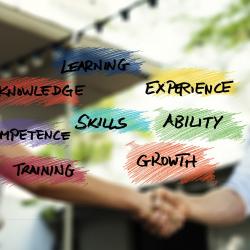Tips for Building Stronger Workplace Relationships
Fostering strong relationships among colleagues is crucial for both personal and organizational success. Positive workplace relationships can lead to increased productivity, improved morale, and a more harmonious work atmosphere. Here are several tips to help you build stronger relationships at work.
-
Communicate Openly and Effectively
Effective communication is the cornerstone of any strong relationship. Make an effort to listen actively, ensuring you understand your colleagues’ perspectives before responding. Use clear and concise language to convey your ideas, and don't hesitate to ask questions if something is unclear. Regularly engage in open dialogues to foster trust and respect. -
Show Appreciation and Recognition
Acknowledging the efforts and contributions of your colleagues can significantly enhance workplace relationships. Regularly express gratitude for their support or a job well done. Whether through a simple thank-you note, verbal acknowledgment, or public recognition, showing appreciation can boost morale and strengthen bonds. -
Be Reliable and Accountable
Reliability is a valued trait in any professional setting. Ensure you meet deadlines, keep promises, and follow through on your commitments. If you make a mistake, own up to it and take the necessary steps to rectify the situation. Holding yourself accountable will build trust and demonstrate integrity to your colleagues. -
Foster Inclusivity and Collaboration
Inclusivity is key to building strong workplace relationships. Encourage collaboration by involving team members with diverse skill sets and perspectives. Be open to different viewpoints and ideas, and actively seek feedback to improve team cohesion. By creating an inclusive environment, you’ll foster a sense of belonging and mutual respect. -
Invest in Personal Connections
Take the time to get to know your colleagues on a personal level. Simple gestures like remembering birthdays, celebrating achievements, or engaging in friendly conversations can go a long way in forming deeper connections. Understanding your colleagues' interests and backgrounds can also help you work more effectively together. -
Manage Conflicts Constructively
Conflicts are inevitable in any workplace, but how you manage them can make all the difference. Address conflicts promptly and directly, focusing on the issue at hand rather than personal attributes. Practice empathy by considering the other person’s perspective, and work collaboratively to find a resolution that satisfies all parties involved. -
Develop Emotional Intelligence
Emotional intelligence (EI) is the ability to understand and manage your own emotions and those of others. Cultivating EI can enhance your interactions with colleagues by increasing self-awareness, empathy, and emotional regulation. High EI individuals are often better equipped to handle stress, resolve conflicts, and maintain positive relationships. -
Provide Support and Encouragement
Being a supportive colleague means offering help when needed and encouraging your peers to achieve their goals. Whether it’s providing feedback on a project, offering to assist with a heavy workload, or simply being a sounding board, your support can make a significant impact on your colleagues’ experiences and your relationship with them. -
Maintain Professional Boundaries
While it's important to develop personal connections, maintaining professional boundaries ensures respect and appropriateness in workplace interactions. Be mindful of the topics you discuss and the level of personal information you share. This balance will help maintain a professional atmosphere while allowing for genuine connections. -
Be Adaptable and Open to Change
The ability to adapt to change and remain open-minded is essential in building strong workplace relationships. Embrace new ideas and be flexible when encountering different working styles or methods. Your willingness to adapt can foster an environment of innovation and mutual respect.
In conclusion, building stronger workplace relationships requires effort, empathy, and effective communication. By implementing these tips, you can create a more positive and productive work environment where both you and your colleagues can thrive. Remember, strong relationships are built over time, so be patient and consistent in your efforts.






















